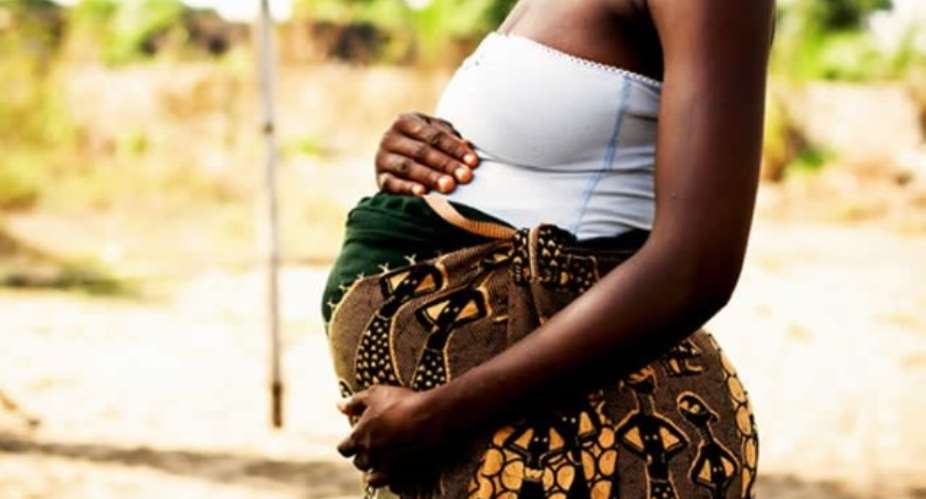The Gender, Children and Social Protection Ministry has rolled out a programme it says will sustainably tackle extreme poverty in the country.
Director of Policy Planning, Monitoring and Evaluation at the Ministry, Mawutor Ablo, says apart from ongoing social intervention programmes, like the Livelihood Empowerment Against Poverty (LEAP), a new system is focusing on tackling poor nutrition and healthcare for mothers and their children.
Poor nutrition and inadequate health care have been identified as among the basic deprivations of persons classified as poor.
“The most sustainable way of breaking this inter-generational transmission of poverty is to target the children. The way we are targeting the children is from the womb,” Mr Ablo said on Joy FM’s Super Morning Show on Tuesday.
He explains this approach is crucial because when a pregnant woman is unable to access proper nutrition, it affects the cognitive development of the child, and when this lack of proper nutrition continues until two years, the child is most likely to suffer development challenges.
Mr Ablo states further that the government is currently working towards identifying the estimated 8.4% of the Ghanaians who are described as being ‘extremely poor’ in a bid capture them in national development policies.
He said after a pilot in the three regions of the north, the Gender Ministry, in collaboration with the Ghana Health Service, has developed a system to identify extremely poor people to target them for this new social protection focus.
“Now we are doing it on a national scale,” he revealed.
Ghana joined the rest of the world on Tuesday, October 17, 2017, to mark the 25th anniversary of UN-backed International Day for the Eradication of Poverty.
The 2016 Ghana Poverty and Inequality Report reveals despite Ghana’s economic growth, inequality, especially in three regions of the north – Upper East, Upper West, and Northern regions – remains high.
The report also said the general inequality gap is widening in the country despite the good growth records.
Chief of Policy at UNICEF, Sarah Hague, who also spoke on Tuesday’s Super Morning Show, said although poverty means different things to different people, the government should focus on people that “don’t have a right to have a decent living and don’t have access to basic livelihoods.”
She praised Ghana’s social intervention drives, noting that the country is a champion in Africa with regards to social intervention policies.
“The cash transfer programme, LEAP, is reaching hundreds of thousands of people and is bring about concrete change because these are the poorest people in the country,” she said.
She, however, urged the government to bridge the current inequality gap because it becomes difficult to do so when the gap widens too much.
Story by Ghana | Myjoyonline.com | George Nyavor | [email protected]





 There’s nothing you can do for us; just give us electricity to save our collapsi...
There’s nothing you can do for us; just give us electricity to save our collapsi...
 Ghanaian media failing in watchdog duties — Sulemana Braimah
Ghanaian media failing in watchdog duties — Sulemana Braimah
 On any scale, Mahama can't match Bawumia — NPP Youth Organiser
On any scale, Mahama can't match Bawumia — NPP Youth Organiser
 Never tag me as an NPP pastor; I'm 'pained' the 'Akyem Mafia' are still in charg...
Never tag me as an NPP pastor; I'm 'pained' the 'Akyem Mafia' are still in charg...
 Your refusal to dedicate a project to Atta Mills means you never loved him — Kok...
Your refusal to dedicate a project to Atta Mills means you never loved him — Kok...
 2024 elections: I'm competent, not just a dreamer; vote for me — Alan
2024 elections: I'm competent, not just a dreamer; vote for me — Alan
 2024 elections: Forget NPP, NDC; I've the Holy Spirit backing me and nothing wil...
2024 elections: Forget NPP, NDC; I've the Holy Spirit backing me and nothing wil...
 2024 elections: We've no trust in judiciary; we'll ensure ballots are well secur...
2024 elections: We've no trust in judiciary; we'll ensure ballots are well secur...
 Performance tracker: Fire MCEs, DCEs who document Mahama's projects; they're not...
Performance tracker: Fire MCEs, DCEs who document Mahama's projects; they're not...
 Train crash: Railway ministry shares footage of incident
Train crash: Railway ministry shares footage of incident
